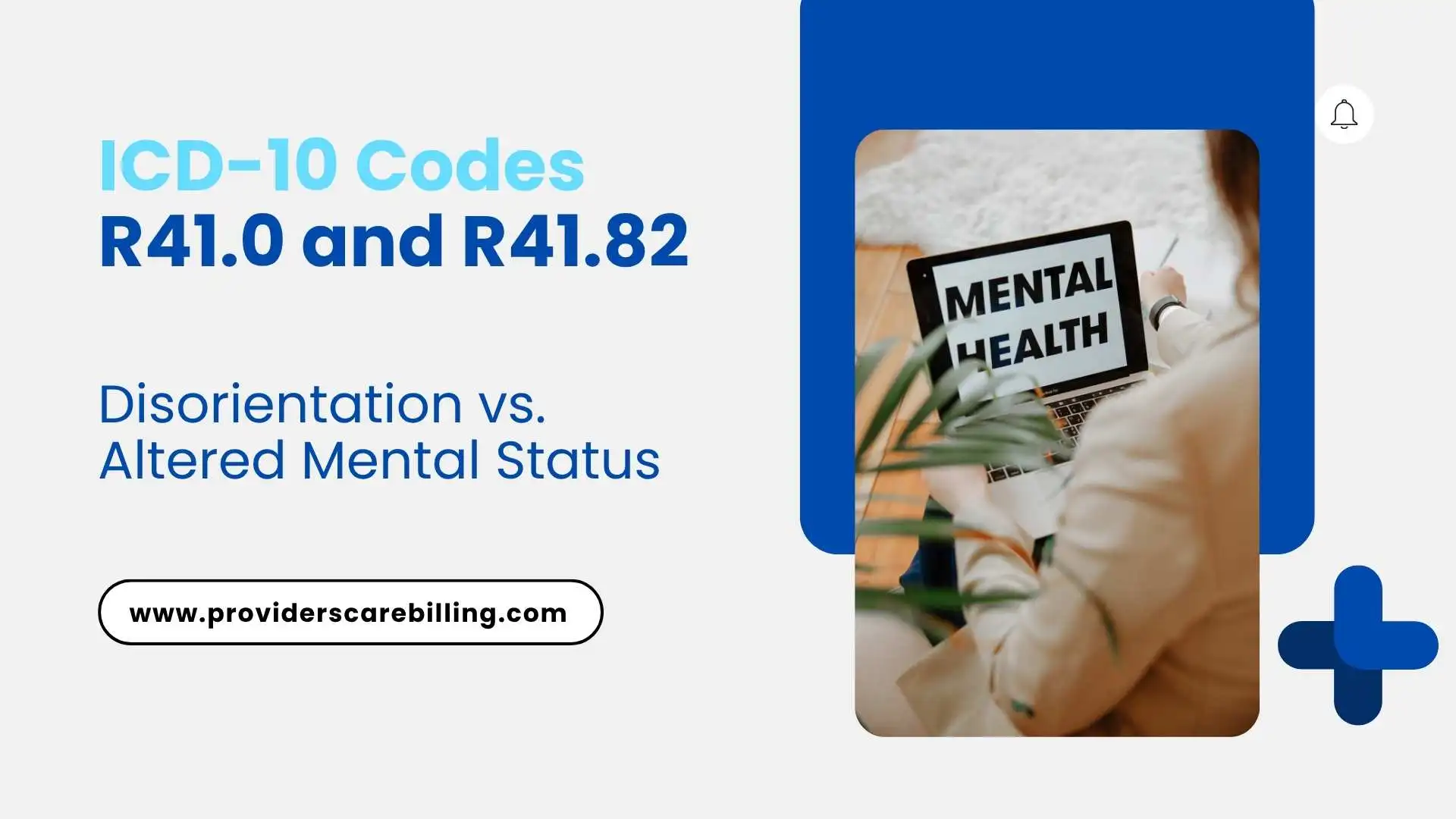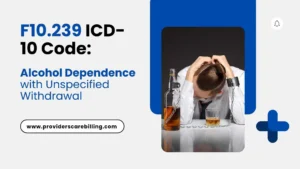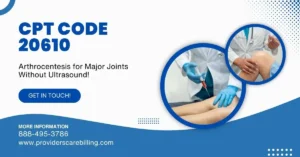Have you experienced situations in which patients appear to be mentally not in their best form and you’re left trying to figure out what code applies best for their case?
Choosing between R41.0 and R41.82 isn’t as simple as it may seem. While both codes may be met in ambulances and clinics, each one is not unique in its own right, but also determines the difference in payment received.
In this article, I aim to bridge the gap by highlighting the differences, informing you of the best practices, and offering actionable steps in keeping your documentation precise, thus lessening the chances of paying less while taking full advantage of the favorable outcomes.
Defining Characteristic for ICD-10 Code R41.0
R41.0 means the sign and code were registered as disorientation.
If a person is experiencing confusion concerning the notion of current time, the location, or the person’s self-identity, then such an individual is appropriately coded and diagnosed with R41.0. This goes beyond feeling off as it manifests in the inability to recognize one’s presence spatially or temporarily.
Appropriate Scenarios for Using R41.0
· A patient forgetting the current year after a fall
· Early phase indicators of dementia that involve disorientation
· Recovery from stroke with confusion of location and time
· ICU discharge where the patient is not oriented in time and place
Pro Tip:
Do use R41.0 only when the primary concern is disorientation without a more precise diagnosis, such as delirium or encephalopathy available.
What is ICD-10 Code R41.82 – Altered Mental Status, Unspecified?
R41.82 is useful when the patient’s serious mental changes are vague and unclear.
Please consider this a temporary solution while you investigate the underlying cause, which will help clarify the situation.
When to Use R41.82:
· Abrupt disorientation with no identifiable triggers
· Behavioral changes attributed to potential fever or dehydration
· Patient in ER behaving unusually, but as yet unclassified
· Behavioral changes post injury, waiting for assessment
Key Differences R41.0 and R41.82
| Feature | R41.0 – Disorientation | R41.82 – Altered Mental Status |
| Description | Confused about time/place | General mental change |
| Use case | Clearly defined disorientation | Vague/confused state |
| Common setting | Geriatrics, post-op care | ER, urgent care, ICU |
| Underlying cause? | Not required | Not required |
| Replace when specific? | Yes | Yes |
Billing and Documentation Tips
Here’s how to avoid common mistakes and get paid faster:
For Solid Documentation
· Write clear notes: Patient disoriented to time/place
· Avoid vague descriptions like confused
· Always reassess the diagnosis after labs/imaging
Just as it’s important to distinguish between disorientation and altered mental status, proper documentation of related symptoms like R10.9 for abdominal pain is essential for accurate coding and reimbursement.
When to Skip These Codes
· If the patient has a confirmed case of delirium (F05)
· If encephalopathy (G93.40) or other specific conditions apply
· Don’t leave R41.82 in the chart if a final diagnosis is reached
Coding Insight: Use R41.82 at first contact (like in the ER), but update it later as the diagnosis becomes more specific.
Common CPT Codes Used Alongside R41.0 or R41.82
| CPT Code | Description |
| 99202–99215 | Office/outpatient E/M visits |
| 96130–96131 | Psychological or cognitive testing |
| 99484 | Behavioral health integration |
| 90832–90838 | Psychotherapy (if applicable) |
Use these codes appropriately based on the care setting and the services rendered.
Clinical Examples
Example 1:
A 75-year-old man fell to an accident and was brought to hospital after the accident. He knows who he is and what the date and time are today, but he doesn’t know where he is.
Use: R41.0 if it’s disorientation.
Example 2:
A patient presents with new confusion. No fever. No known history. Labs are pending.
Use: Start with R41.82. Switch once the root cause is found.
Example 3:
A stroke rehab patient shows ongoing disorientation to time.
Use: R41.0 accurately reflects the symptom tied to their neurological recovery.
Why Accurate Coding Matters
Getting the right code helps with:
· Faster insurance approvals
· Fewer denied claims
· Honest reflection of patient condition
· Strong clinical documentation during audits
Using the right ICD 10 code AMS helps to capture the real care that is given. Don’t let vague coding delay payments or create compliance risks.
Real-World Challenges Providers Face
Every day in clinical practice, providers face many cases in which it becomes difficult to choose the code. A patient comes and seems distracted, forgetful, or unable to respond to very basic questions. Is it disorientation? Altered mental status? Or something more profound?
There are instances when patients can speak fluently but have difficulty recalling the year. At other times, they may be responsive while staring blankly into space. These small clinical details are critical. Especially during busy clinic hours or in crowded ERs, it’s easy to opt for the first code that seems to align.
But precision and detail make a difference in coding. It affects the care quality metrics, the accuracy of the medical record, and the narrative billing constructs for the payers. It impacts more than boxes being checked. It is about preserving the events and actions that truly unfolded in that room.
Disorders of R41.0 codes tell counts someone is disconnected from time or place and is chronically disoriented. While R41.82 captures more generalized concerns. Understanding the distinctions enables documenting what you truly saw.
Even experienced doctors are known to take a moment to figure out which one to select. That is perfectly fine. Your coding should align with your clinical judgment, your documentation, and your patient’s pathway to ensure everything is in sync.
Related Codes to Keep in Mind
| ICD-10 Code | Condition |
| F05 | Delirium due to medical condition |
| G93.40 | Encephalopathy, unspecified |
| R41.3 | Amnesia |
| R41.89 | Other cognitive symptoms |
These may be better suited once the diagnosis becomes clearer.
Conclusion
· Use R41.0 if the patient is disoriented on knowing their location or the time.
· If they are off mentally and you are in the process of figuring out the reason why, use R41.82 for now.
As always, use your judgment. Document everything and change codes as new information flows in.
The phrases confusion ICD 10, ICD 10 code for delirium, and alteration of mental status are not random. They can lead to precise treatment, precise billing, and uncomplicated payment processing.
Are you looking for Help with ICD-10 or CPT Coding?
At Providers Care Billing LLC, we assist with issues related to complex coding, submission of clean claims, and prompt payment processing.
Our team is available to guide your practice in primary care, neurology, or behavioral health throughout the entire process.
We are ready to optimize your coding workflow and are inviting you for a conversation today.




